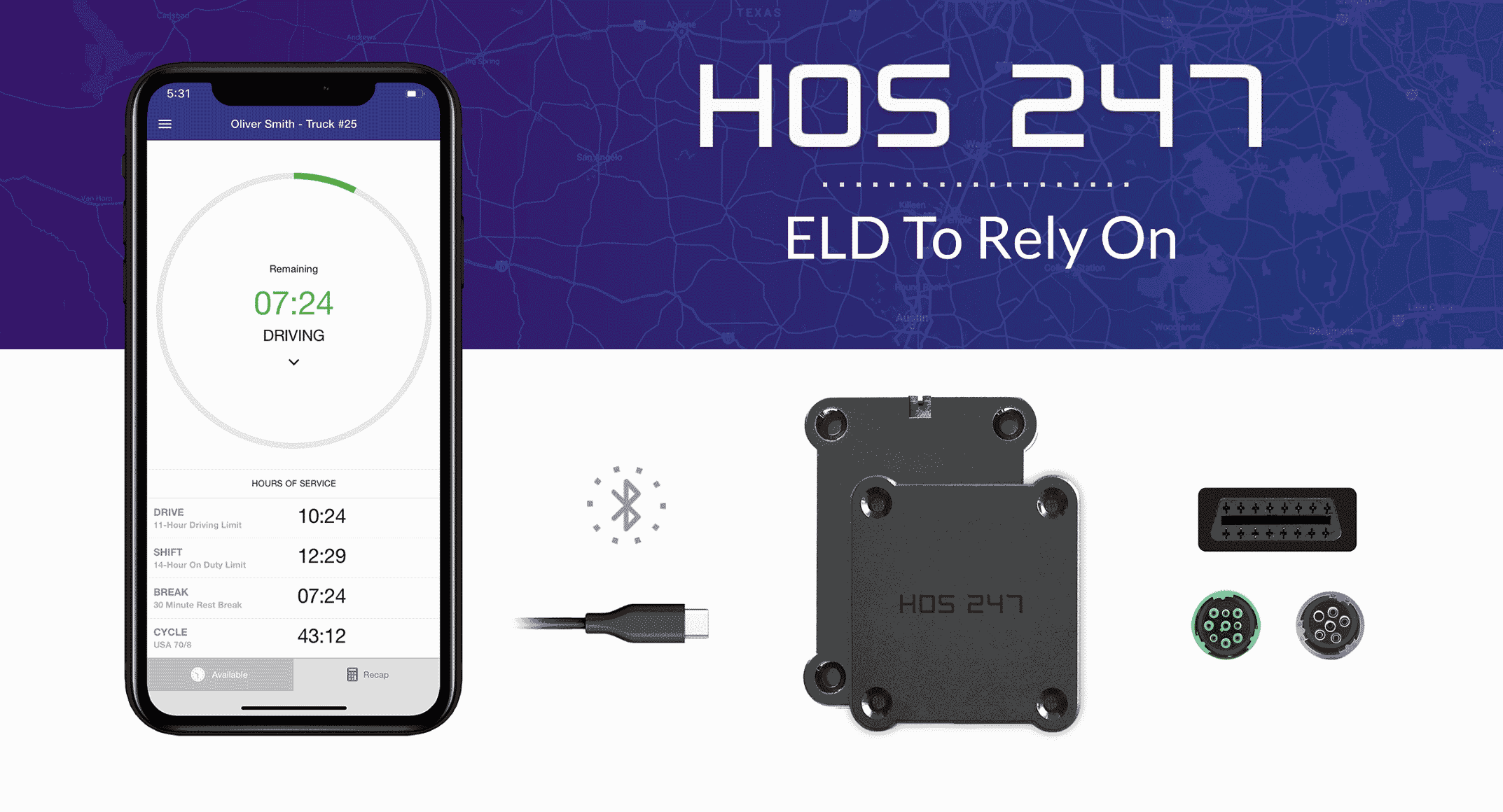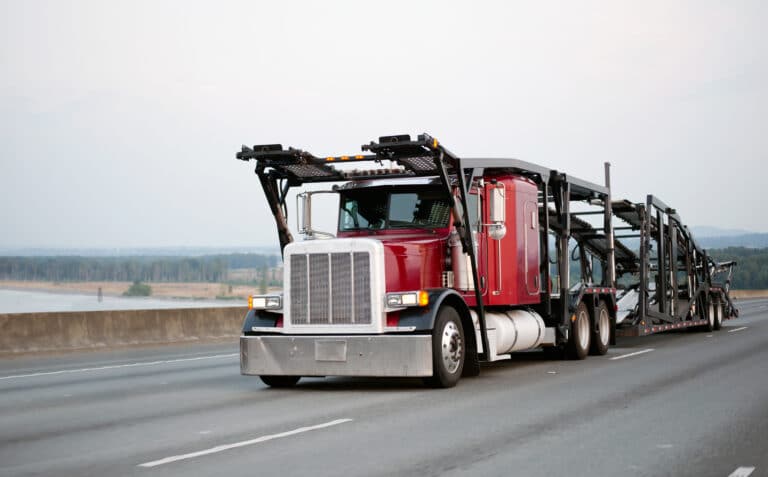The ELD mandate states that all commercial motor vehicle drivers will be required to keep records of their duty status using an electronic logbook. This means that drivers will need to adopt electronic logging devices in order to comply with DOT regulations. In Canada, the ELD mandate timeline is as follows:
December 2017 – The Government of Canada published a series of regulations for commercial vehicle drivers’ hours of service, including electronic logging devices.
June 2019 – Transport Canada announced the mandatory use of electronic logbooks for operations involving commercial trucks and bus operators.
June 12, 2021 – The Canadian ELD mandate came into effect. This was the original deadline for truckers to switch from paper daily logs and comply with elog requirements. Instead, Transport Canada decided to implement a one-year period of progressive enforcement.
June 12, 2022 – First enforcement deadline. This date was postponed due to the limited availability of certified devices.
January 1, 2023 – New enforcement deadline. Carriers will not be penalized for using paper daily logs until this date.
Delay in Full Enforcement
There was an important change in the ELD mandate timeline because more time was needed to allow carriers and operations to adapt. In a way, the full effect of the mandate was postponed, which was supposed to take place during this year, as was the original intent of the transportation authorities implementing the mandate in Canada.
Jurisdictions in which HOS rules apply state that the rollout of the ELD mandate will have an initial period focused on education and raising awareness on the new legislation. Penalties will not be enforced until June 12, 2022.
The Federal Transport Minister has called this a “progressive enforcement period” for one year to support carriers under federal regulation facing the deadline of June 2021. Yes, part of the reason for the gradual enforcement of the mandate is to allow an extension to take on the considerable impact of the COVID-19 pandemic upon the whole industry. It would have been quite difficult to have the mandate up and running fully in such a short time. Some other reasons have affected the ELD mandate timeline, including pending certifications.

What Is an Electronic Logging Device?
Transport Canada defines an electronic logging device as a certified, tamper-resistant device or technology that automatically records driving time and records of duty status for drivers. It allows knowing if, when, and for how long a vehicle is traveling to make sure drivers stay within their daily limit and log their working hours correctly. It captures data from the engine to track the vehicle’s movement and distance covered. It also keeps drivers and dispatchers informed on driver status in real-time to support the fleet regarding compliance, inspections, and planning activities. An ELD has several components, including a tracking device that connects to the truck, fleet management software, and an app.
Who Needs to Use Electronic Logging Devices?
A company operating only within a single province will fall under provincial jurisdiction in Canada, while companies providing transportation services outside of their province are under federal jurisdiction, even when carrying out local activities. The new rules are intended for carriers regulated at a federal level, which add up to almost 157,500 commercial vehicle drivers. Each province will determine how to apply the new rules based on their particular specifications. For now, there will be no changes for carriers regulated at a provincial level.

There are some main exemptions to the ELD mandate:
- Vehicles on short-term rental (under 30 days).
- Commercial vehicles assembled before 2000.
- Vehicles operating within a 160 km radius from the home terminal (since they are not currently mandated to keep log books).
- Vehicles operated by motor carriers that have an exemption issued by a provincial or federal authority.
Differences Between Canadian and US ELD Mandates
Electronic logbook regulations are somewhat different in Canada and the US. Carriers operating in both countries must know how they apply on either side of the border to keep their drivers in compliance at all times and remain ahead of the curve once the checkpoint of mandated electronic logs comes into effect as scheduled in the ELD mandate timeline.
Certification Process
In the United States, elog providers self-register their devices onto the FMCSA list of approved devices. So far, more than 700 devices have been added to this list, and carriers must carry out their own device supplier search and selection.
On the other hand, the Government of Canada decided to have a third-party certification process to achieve higher compliance. The goal is to protect carriers by making sure an independent authority validates ELD solutions so they comply with technical requirements and certifications cannot be forged. Canadian providers must pay to test and certify their solution by an accredited entity. At the moment, there are three accredited certification bodies.
|
Company Name |
Company Address |
Contact name |
Contact e-mail |
Contact Phone Number |
|
22 Catalina Drive Sherwood Park, Alberta T8H 1R2 |
Robin Doherty |
robin@comdriver.tech |
(780) 218-8899 |
|
|
178 Rexdale Blvd Toronto, Ontario M9W 1R3 |
Michael Henry |
michael.henry@csagroup.org |
(416) 747-2661 |
|
|
570 boulevard Saint-Jean Point Claire, Quebec H9R 3J9 |
FPInnovations’ ELD Certification Team (Lead: Adime Bonsi) |
eld_dce@fpinnovations.ca |
(514) 782-4696 |
(As of September 21, 2021)
Recordkeeping During ELD Malfunction
In the US, drivers can record hours of service using another method for no more than 8 days if the logbook malfunctions (usually paper records). In Canada, drivers can use daily logs on paper for as long as 14 days or until they reach the home terminal at the end of the trip if it exceeds that time. After this period, the driver must have a functional electronic logbook in place once again.

Notifications Prior to Violations
Canadian regulations require the ELD to notify the driver at least 30 minutes before reaching any limits stated by current rules for hours of service. This measure is designed to inform the drivers in due time, prevent violations, and improve road safety. US regulations have no such provisions.
Supporting Canadian Rules
In Canada, hours of service rules consider more situations and provisions compared to the US rules. Canadian ELDs must support all of these specifications. Here are the most important ones:
- There are 2-hour-of-service cycles that can apply to drivers: cycle 1 (70 hours over a 7 day period) and cycle 2 (120 hours over 14 days).
- There are two zones of operation: North of 60th and South of 60th.
- Deferrals of daily off-duty time on to the next day (day 1/day 2).
Why Choose HOS247?
The team at HOS247 is known for its experience, dedicated support for the user, and customer service in several languages. Our solution sets itself apart by offering some key advantages:
- User friendly: Easy learning curve, fast and straightforward installation.
- Premium support: We are available every day to help with any problem you may have out on the road.
- Flexible options: Scale your plan up or down as needed, no contracts, and two-week return and refund, no questions asked.
- Extra features: GPS Tracking, IFTA mileage, dispatch integrations, fault code detection, and more.
Our idea of an ELD solution is to ensure a steady performance. HOS247 is all about reliability. Our job is to make compliance easier for our clients, so they can dedicate themselves to growing their business.

I’ve co-founded, built and managed several transportation-related businesses. Now, I’m a founder and CEO of HOS247 – an AI Transportation Platform for trucking companies, freight brokers and other logistics operations. We are transitioning old-style operations to technology-advanced logistics entities and help them to grow their businesses. ELDs (electronic logging devices), fleet tracking and management 2.0 combined with AI-powered dispatch tools.












For truck owners and carrier companies in Canada, logistics is always a priority. This is where real-time tracking of commercial vehicles can offer multiple benefits, including increased productivity and enhanced security. Before going into the advantage of live truck tracking

Managing a fleet of trailers can be challenging, from tracking their locations to preventing delays, theft, and other issues. However, there is a solution that can revolutionize fleet management: GPS trackers. These innovative devices provide motor carriers with greater control

ELD logs are here to stay: using an electronic logging device will become mandatory for commercial vehicles in Canada as of January 1, 2023. Professionals in the industry must choose and equip one to comply with the law. This is